Here is a map with the beeline from Bucharest to Costanta
Archiv der Kategorie: Nezařazené
Mentoring – Potentials for the advancement of female careers in European academia and research and Gender Equality Plans
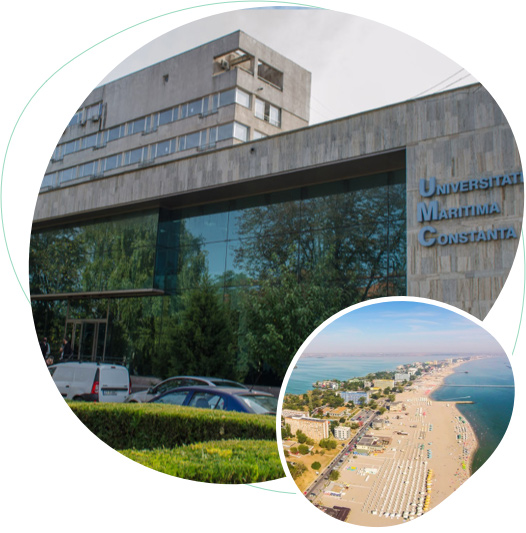

Constanta Maritime University (Romania) and the European Mentoring Network (eument-net) are organising an international conference with a professional exchange session:
Mentoring – Potentials for the advancement of female careers in European academia and research and for Gender Equality Plans
02. – 03. September 2024, Constanţa, Romania
It is with great pleasure that we invite you to our upcoming international conference. The core aims are to share good practices and positive examples of mentoring programs designed for advancing female careers in academia and Gender Equality Plans (GEP) actions. The event will also provide excellent networking opportunities for developing joint actions in mentoring and overall gender equality.
Objectives of the conference:
1. Improve action based on mutual sharing and discussion on mentoring and overall gender equality.
2. Brochure on the variety of mentoring programs in Europe and GEP prerequisites.
3. Share good practices on mentoring as part of Gender Equality Plan and on changing organisational culture towards gender equality.
We welcome members of academic and research institutions, practitioners, governmental agencies and any other individuals interested in mentoring programs and GEP and institutions across Europe. Please read about the opportunities to take part in the Call for Contributions.
Venue:
Constanţa Maritime University / UNIVERSITATEA MARITIMA DIN CONSTANTA
Mircea cel Bătrân Street no. 104
Constanţa 900663, Romania
Here you can find the location on Google Maps!
Please find all the relevant travel information in our Constanţa travel guide: Constanţa Travel Guide
The program of the conference you can find here: Program eument-net Conference 2024
We are looking forward to meet you in Constanţa!
Organizational Team:
Prof. Cristina Dragomir
Michaela Gindl
Dr. Dagmar Hoeppel
Ekaterina Masetkina
Dr. Evelyn Rusdea
Call for professional exchange
Call for professional exchange: Resilient Mentoring Programs – Strategies to Overcome Challenges (Exchange Session, Sept. 3)
Expected are insights and experiences shared by mentoring coordinators in navigating challenges of mentoring programs and proposing strategies to overcome them. Your expertise is invaluable in advancing our understanding of the challenges and opportunities in promoting gender equality by the means of mentoring within academia in Europe. By sharing experiences, strategies, and lessons learned, participants will collectively explore effective approaches to overcoming challenges and strengthening the impact of mentoring programs.
Possible topics for discussion and exchange:
- Shortfall of structures and institutional support for gender equality initiatives
- Challenges stemming from inadequate financing and resource allocation
- Addressing disinterest among potential mentees, mentors, or stakeholders
- Strategies for overcoming obstacles in organizing and sustaining mentoring programs
- Best practices and innovative approaches in promoting gender equality and fostering a culture of learning from failure within mentoring initiatives
You are invited to submit proposals for presentations and case studies via email to eument-net with the subject heading „Professional Exchange Proposal Submission.“
Submissions should include: your name, title, organization and a brief description of the topic no longer than 150 words.
- Deadline for Abstract Submission: July, 1, 2024
- Notification of Abstract Acceptance: July, 15, 2024
Call for contribution
Call for contribution for the brochure:
As we strive to create a comprehensive brochure on the variety of mentoring programs in Europe, we are reaching out to practitioners like you, who are actively engaged in mentoring programs and gender equality initiatives. We would be grateful if you take a few moments to complete our questionnaire. The responses gathered from the questionnaire will form part of the overview in the brochure, and therefore your participation is very much appreciated. Even if you can´t come to the conference in Romania, you are very much invited to be part of the overview in the brochure.
Dr. Julie Batut
Julie Batut, CNRS researcher, Coordinator of the Femmes & Sciences CBI PhD Programme mentoring programme, Head of the Multimodal Modelling of Organ Development team, MCD, Toulouse, eument-net member.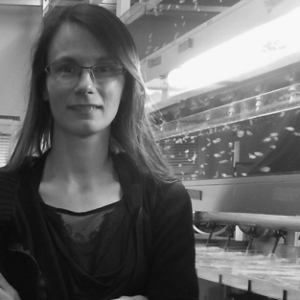
Julie Batut joined the CNRS in 2008 as a researcher in Developmental Biology. Since 2023, she has led a multidisciplinary research team at the Toulouse Centre for Integrative Biology, using mathematical modelling, the zebrafish embryo, imaging and data learning to understand organ formation. She is deeply committed to developing and transmitting inclusive, multidisciplinary science. In conjunction with her scientific career, she is extremely committed to promoting research and the place of women scientists via Femmes & Sciences, Les Chemins Buissonniers and Les Maths en Scène. Since 2017, she has been coordinating the mentoring programme for female PhD students in Toulouse with the Femmes & Sciences association and the CBI phD programme. This programme involves 30 mentor-mentee pairs each year.
Links : https://cbi-toulouse.fr/fr/equipe-batut
Expert Exchange 2024: How to establish an inclusive mentoring relationship
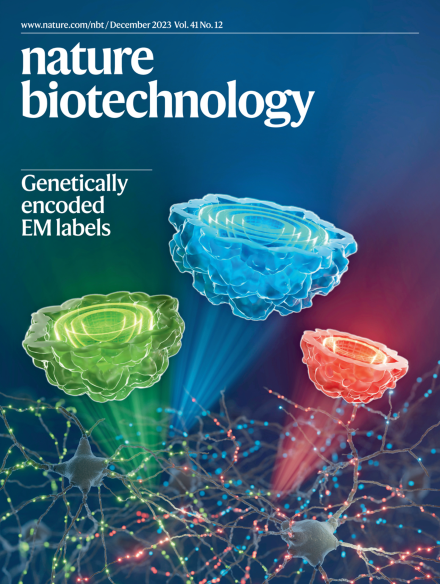

On June, 12 at 10:30-12:00 Dr. Julie Batut (Universite Toulouse, FR) gives a talk on how to establish an inclusive and operational mentor-mentee relationship using the tools of collective intelligence. Mentoring plays a crucial role in personal and professional development, providing support and knowledge transfer between experienced mentors and people seeking to grow. Establishing a mentor-mentee relationship requires a shared understanding of the principles of mentoring and a solid foundation of trust and communication. A practical one-day workshop has therefore been created to build this relationship collectively. The tools used help to build bridges between people and clarify the needs, rights and duties of each person in the interests of an inclusive and active science.
You can find more information about Dr. Julie Batut HERE!
The talk is based on the publication:
Foncy, J., Kwapisz, M., Knibiehler, M. & Batut Jl. Collectively building a mentor–mentee relationship through a one-day workshop. Nat Biotechnol 41, 1829–1833 (2023). https://doi-org.insb.bib.cnrs.fr/10.1038/s41587-023-02056-4
Please apply to participate for free till June 11, 2024: https://forms.gle/SVzj8cFmJKP8ZpaQ7
You are welcome to invite your interested colleagues to the meeting.
With courage to professorship – 25 years of MuT mentoring
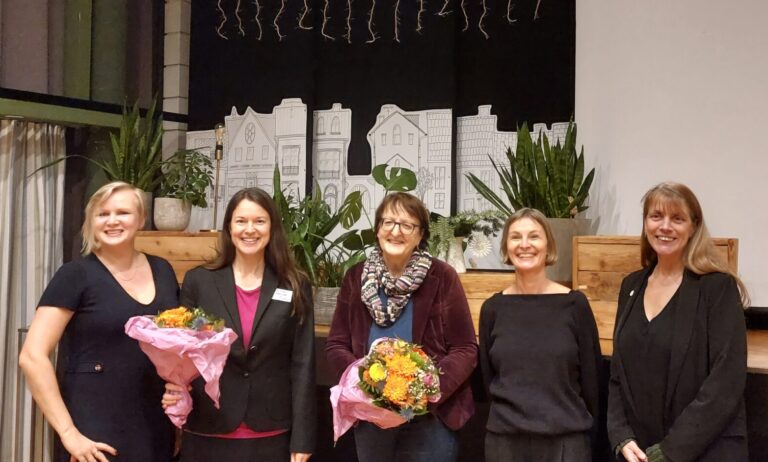

Since 1998, the MuT mentoring program of Stuttgart (Baden-Wuerttemberg, Germany) has been supporting female scientists on their way to professorship. During this time, a considerable mentoring network has been built up and countless success stories of professorships among mentees have been celebrated. Current statistics and personal reports show, how important the mentoring program for women in science continues to be.
Over the past 25 years, Dagmar Hoeppel, the initiator of MuT mentoring and distinguished Vice President of eument-net, has not only paved the way for gender equality in academia in Germany, but has also set standards as a pioneer at the European level. Her vision and commitment to equal chances have not only crossed borders, but also paved the way for other ground-breaking initiatives, such as European Mentoring Network, eument-net. The European cooperation in the field of mentoring, which Dagmar Hoeppel has driven forward, is a shining example of her ability to think beyond national borders and connect people. Building networks, transferring knowledge and promoting mutual understanding have always been central elements of her work. Dagmar´s sound scientific findings in mentoring and gender equality have not only laid the foundation for the development of guidelines and programs, but have also contributed to the global discussion on equality and inclusion.
Eument-net would like to extend the heartfelt congratulations to the eldest mentoring for female scientists in Germany and to thank everyone, who contributed to the success of this program. As one of the first programs of its kind Germany-wide, the MuT mentoring program for female scientists in Stuttgart has made an important contribution to the advancement of women in science. It has supported women in developing their talents, achieving their goals and overcoming obstacles.
Eument-net wishes our member MuT program continued success on your journey. May MuT mentoring encourage the next generations of female scientists and continue to be an inspiring role model for other countries and universities!
Anniversary celebration on December 8, 2023: Ekaterina Masetkina, Dr. Dorett Schneider, Dr. Dagmar Hoeppel, Michaela Gindl, Dr. Christina Kurmeyer (left to right)
eument-net in Freiburg – 10 years of kite mentoring
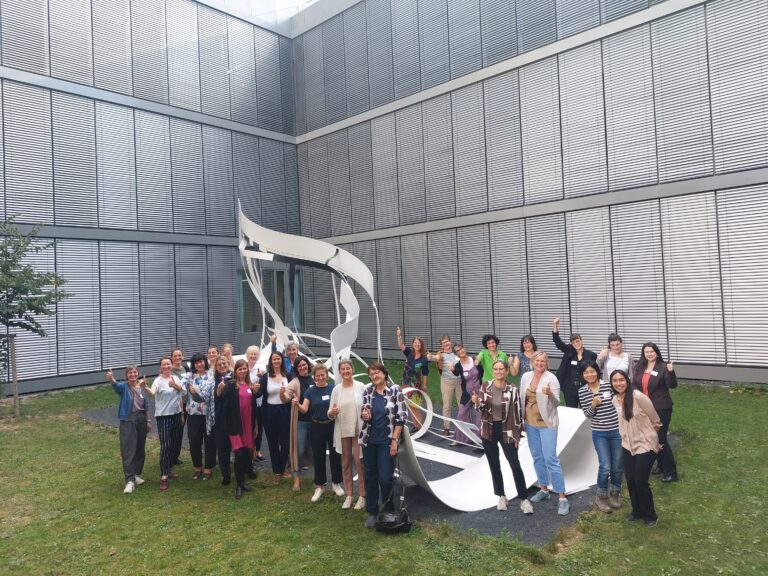

Hosted by the kite mentoring (University of Freiburg) and the European Mentoring Network, eument-net, the conference „Flying to New Heights with kite Mentoring“ was a platform for profound professional exchange, knowledge sharing, and transformative insights.
With a focus on gender equality and the invaluable practice of mentoring, this event is set to ignite a spark of inspiration and innovation. Featuring delegates from eight European countries, we were proud to stand as a collaborative force, including eument-net members from Austria, Czech Republic, France, Germany, Italy, Luxembourg, , Romania and Switzerland. This diverse and united community embodies the spirit of international cooperation and shared knowledge in the field of mentoring and gender equality.
At the core of our mission is the profound belief that mentoring holds the key to unlocking the full potential of female researchers. Our mission is to empower female early career researchers in science and business, fostering a generation of leaders who will soar to new heights.
We owe a great deal of our progress to the exchange of best practices, a collaborative effort that enriches our community. The kite mentoring of the University of Freiburg serves as a shining example of this. It showcases the power of mentorship, guiding individuals towards their academic aspirations with unwavering dedication. Eument-net extends the heartfelt congratulations to Dr. Evelyn Rusdea, a scientific coordinator of kite mentoring and a member of the Executive Board of eument-net, on the occasion of the 10th anniversary of the kite mentoring programme for female researchers.
Thank you for being a part of this remarkable gathering!
Prof. Dr. Marieke van den Brink, NE
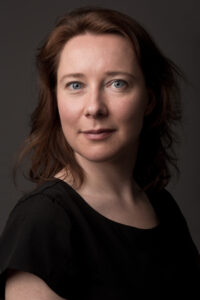
Foto: Roy Soetekouw
Marieke van den Brink is Professor of Gender & Diversity at the Radboud University Nijmegen, the Netherlands. Her main research interest focuses on ways how bundles of interacting organization processes produce intersectional inequalities in organizations. She is especially interested in how various gender practices tied in with academic organizing, such as recruitment and selection, recognizing and rewarding and the construction of scientific excellence. She is a member of the Dutch National Committee for Diversity and Inclusion in Higher Education and was elected as member of the Young Academy of the Royal Netherlands Academy for Arts and Sciences (KNAW). Her work has been published in the Journal of Management Studies, Organization Studies, Organization, Human Relations, Gender, Work & Organization, and Social Science & Medicine.
Prof. Dr. Tomas Brage

Foto: Ellen Sandum
Tomas Brage is a professor of physics at Lund University. He has also worked at Vanderbilt University and NASA GSFC. He is strongly involved in work on Gender and Science, where he is regularly giving talks on “Gender and Physics” around Europe. He is a steering group member of the LERU Policy Group for EDI and participate in the GENERA network and the GenderEX Horizon 2020 project. He is the chair of the section for equality, diversity and inclusion of the Swedish Physical Society and has led or co-led projects on Gender Certification, Antidiscrimination, Core Values, bi-focal mentoring and Unconscious Bias observers in Lund and beyond.
Gender bias in academia – a threat to academic values.
Meritocracy, academic freedom for everybody and excellence in research and teaching are common and important core values for universities. However, there are many challenges to these, not the least from external pressure in a neo-liberal era. However, the most important threat might come from internal shortcomings. In academia, selections and evaluations are daily practices and important parts of e.g. career paths and assessment of students. Lately more and more evidence, research and studies show that our preconceived ideas – our bias – is a clear obstacle for a fair process and points to that mitigating its effects is essential to defend, not the least, the meritocratic principle.
In this talk, Prof. Brage will discuss bias both as a psychological and individual problem, but also as a systemic, where processes get hi-jacked. He will discuss how it can lead to micro-aggressions and, if not counteracted, to worse – harassment and discrimination. Prof. Brage will bring up examples on how to mitigate this problem, by referring to some “toolboxes” and good practices, from European networks such as LERU.